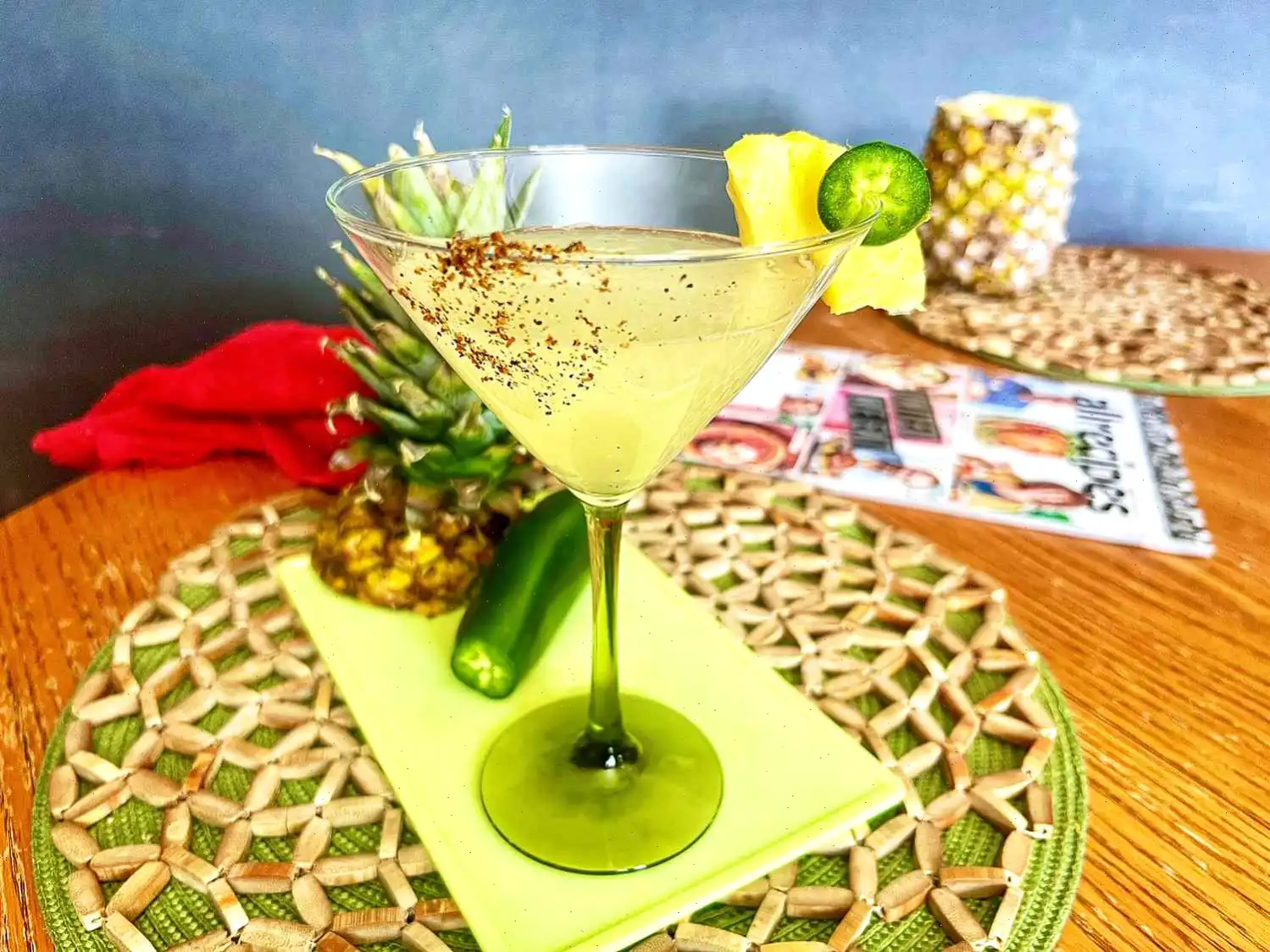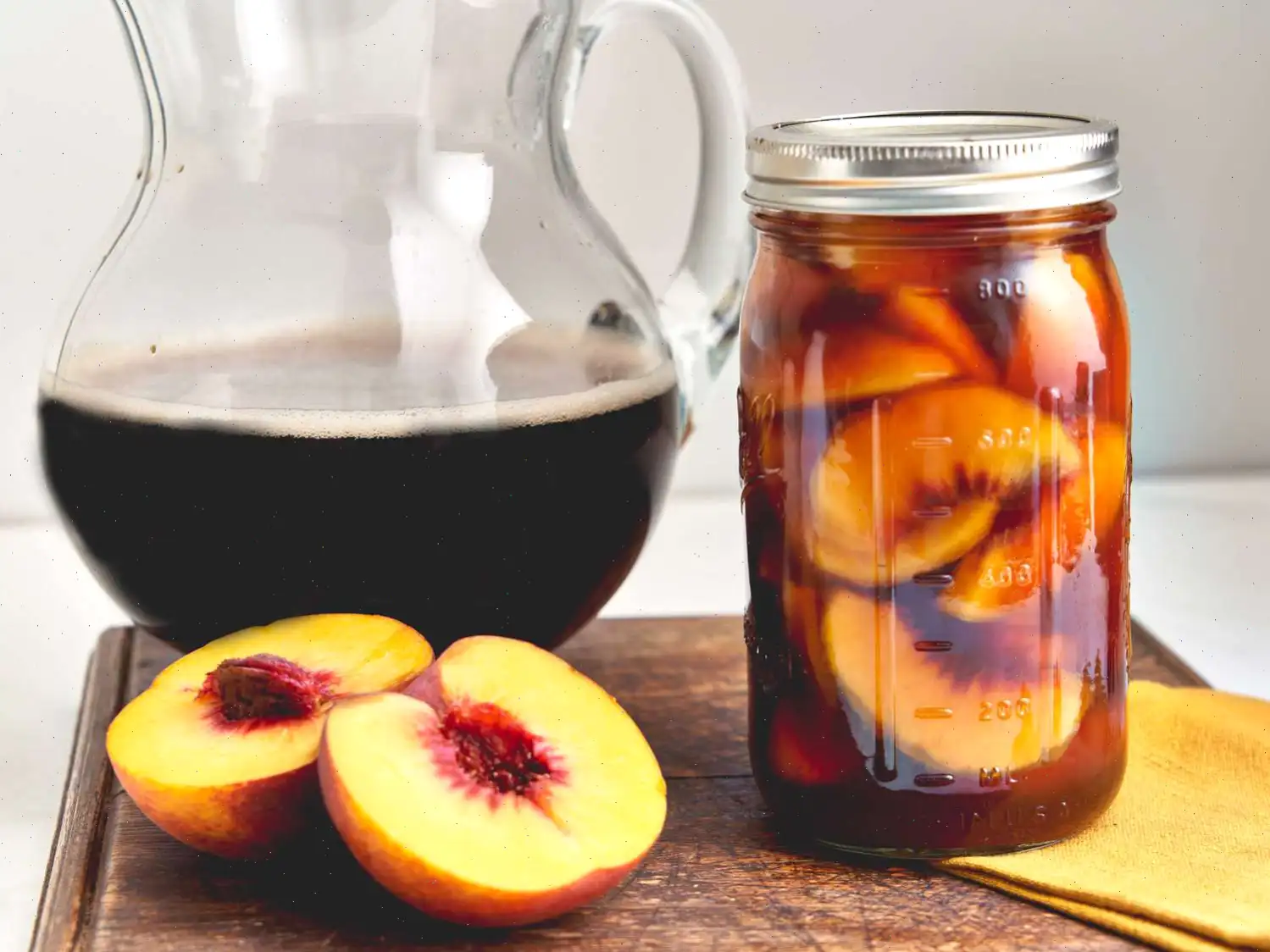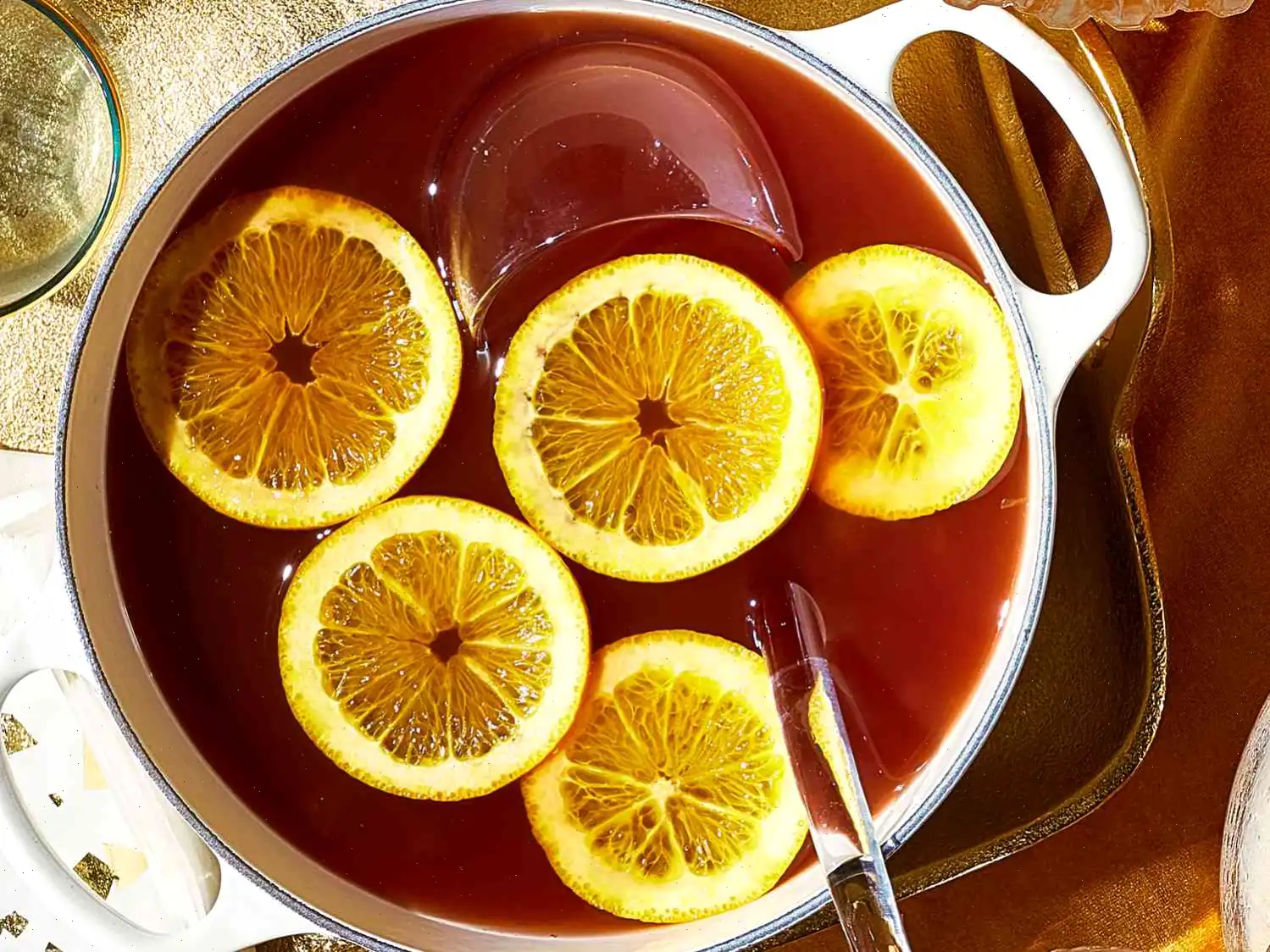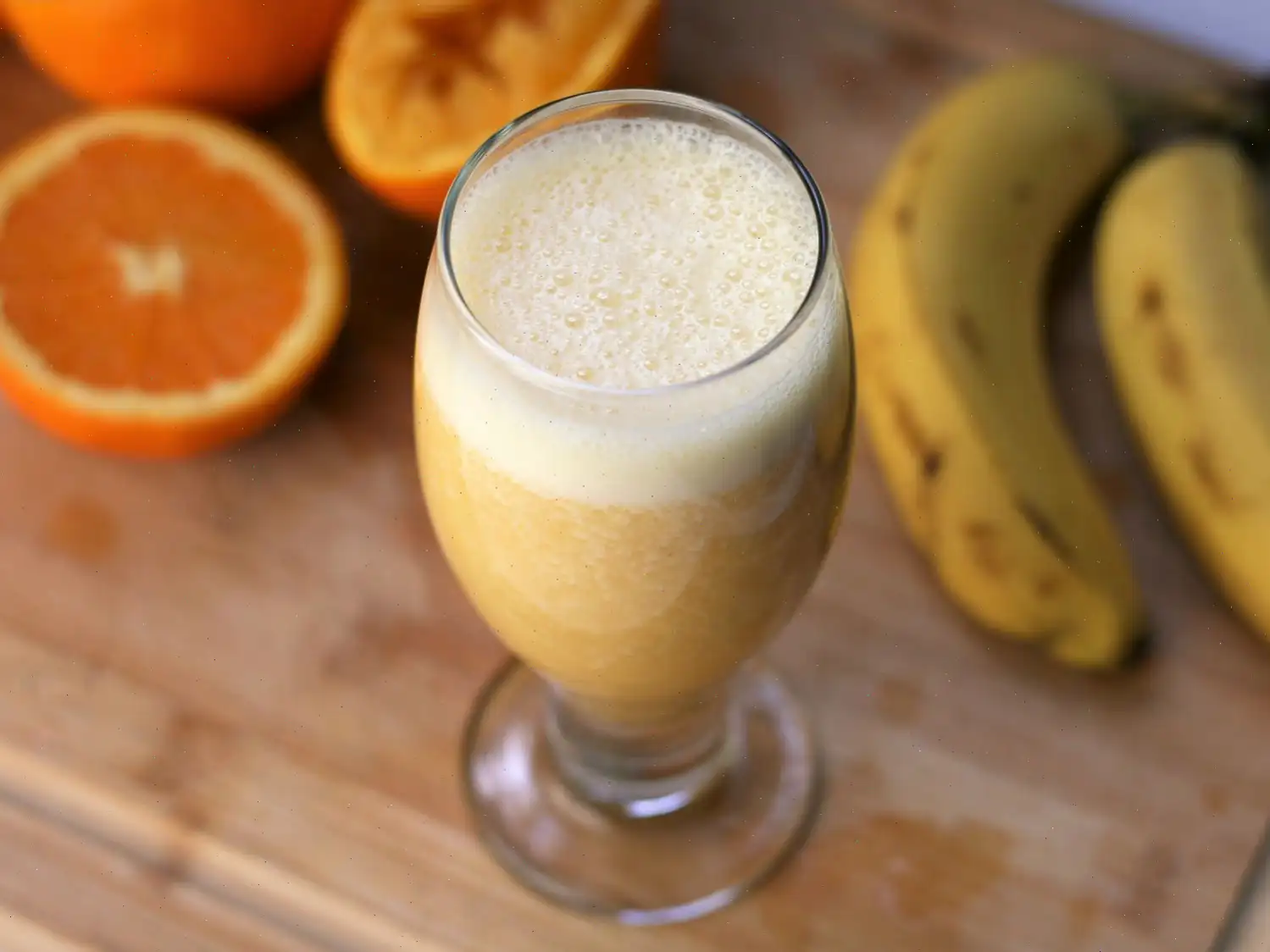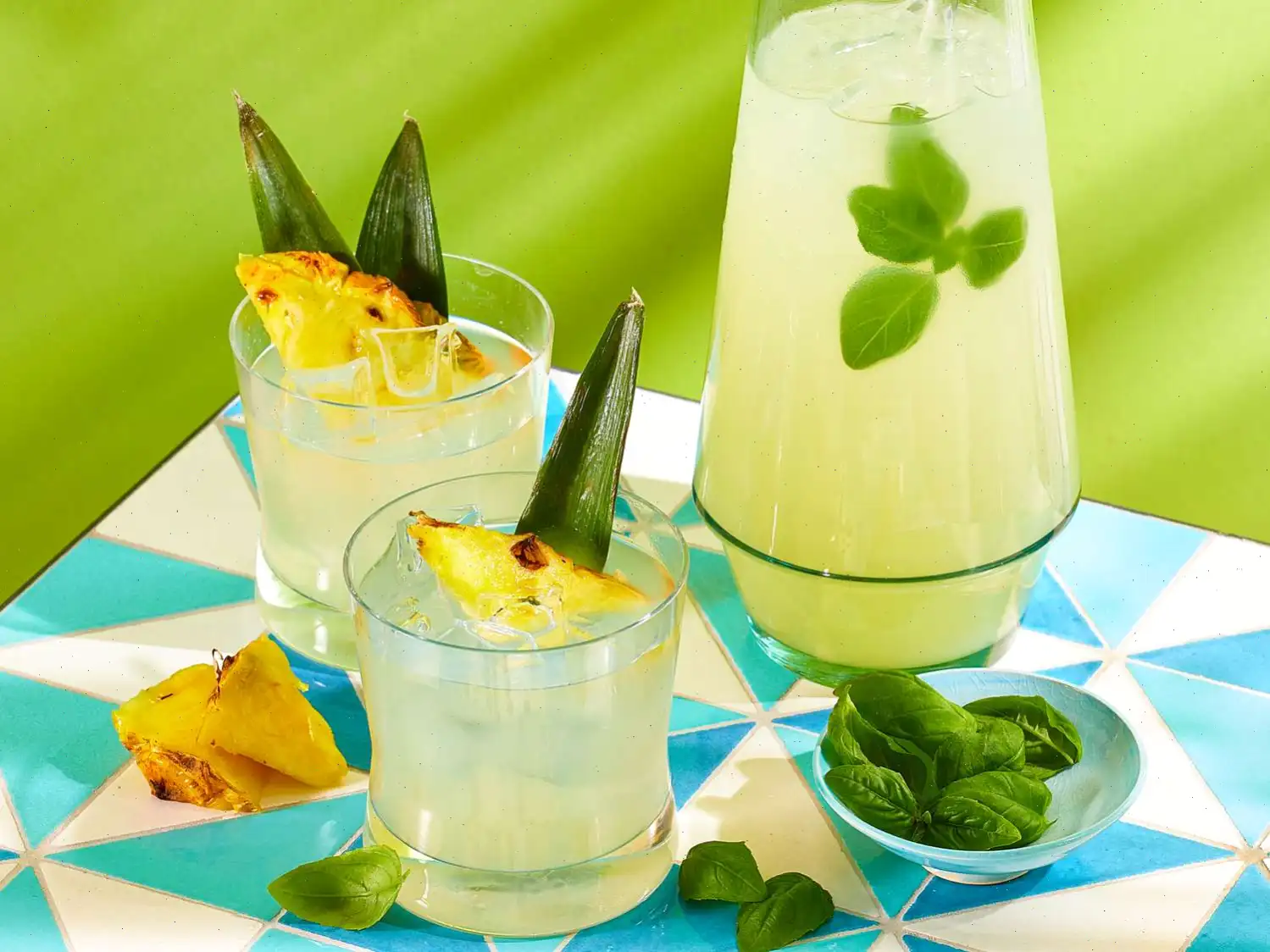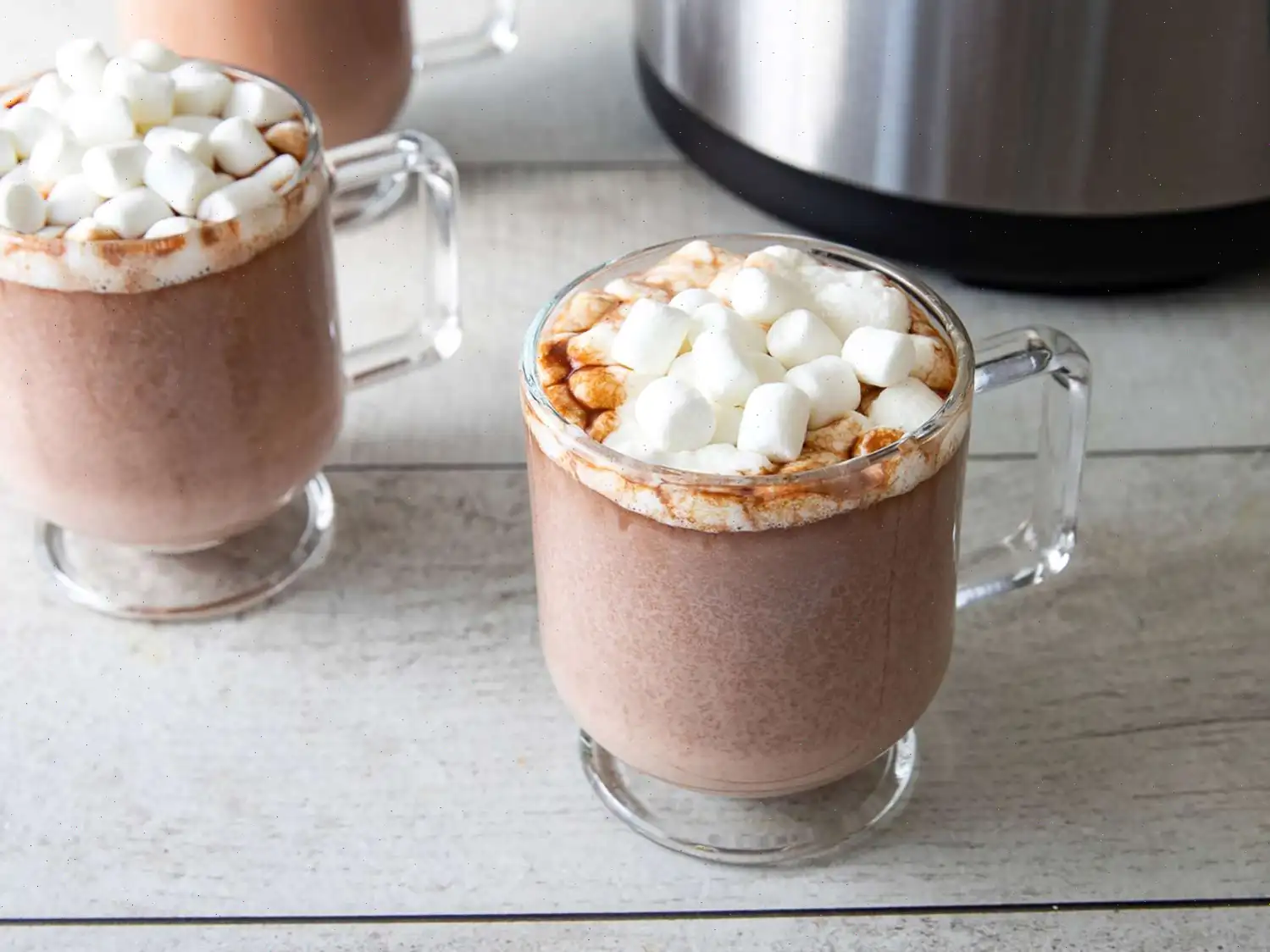
Blood Orange-Almond Sparkler Recipe
Ingredients
- Ice
- 1 ounce Blood Orange Syrup (see Note)
- 3/4 ounce bourbon
- 1/4 ounce amaretto
- 4 ounces club soda
- 3 ounces chilled moscato d'Asti (sparkling white wine)
- Orange twist, for garnish
Directions
- Fill a wineglass halfway with ice.
- Pour in the Blood Orange Syrup, bourbon, and amaretto, and stir gently to combine.
- Top the mixture with club soda and moscato d'Asti, giving it one more light stir.
- Garnish with a twist of orange peel.
Blood Orange Syrup
- In a food processor, pulse 1/4 cup sugar with 1 tablespoon of blood orange zest until the sugar is moistened and the zest is finely chopped.
- Transfer the sugar mixture to a small saucepan and add 1/4 cup of water. Heat over medium heat, stirring frequently, until the sugar dissolves (about 3 minutes).
- Remove the saucepan from the heat and stir in 1/2 cup of fresh blood orange juice (from 2 small oranges) and 1 tablespoon of lemon juice.
- Transfer the syrup to a canning jar, cover, and chill for 1 hour (or up to 1 month). Makes 1 cup of syrup.
Nutrition Facts
Per serving:
| Nutrition Fact | Amount | % Daily Value |
|---|---|---|
| Calories | 228 | |
| Total Fat | 0g | 0% |
| Saturated Fat | 0g | 0% |
| Cholesterol | 0mg | 0% |
| Sodium | 25mg | 1% |
| Total Carbohydrate | 25g | 9% |
| Dietary Fiber | 0g | 0% |
| Total Sugars | 16g | |
| Protein | 0g | 0% |
| Vitamin C | 3mg | 3% |
| Calcium | 30mg | 2% |
| Iron | 0mg | 2% |
| Potassium | 71mg | 2% |
Note: Nutrition data is based on the full amount of Blood Orange Syrup used in the recipe. The actual amount consumed will vary depending on your portion size.
History of the Blood Orange-Almond Sparkler
The Blood Orange-Almond Sparkler is a modern cocktail that combines the bright citrus flavor of blood oranges with the rich, nutty sweetness of amaretto, and the effervescence of sparkling wine. Blood oranges are native to the Mediterranean region, particularly Italy and Spain, and their deep red color comes from anthocyanins, antioxidants that develop in the fruit when temperatures are cool. The popularity of blood oranges in cocktails is a recent trend, especially with the rise of unique fruit syrups and craft beverages. While the combination of citrus and spirits has long been a staple in mixology, the addition of almond-flavored amaretto creates a smooth, aromatic twist, making this drink a sophisticated choice for celebrations or casual gatherings.
Regional Variations and Adaptations
While the Blood Orange-Almond Sparkler is popular in contemporary American bars and home kitchens, its ingredients reflect a fusion of different regional influences. The use of blood oranges, though associated with the Mediterranean, is now common in a variety of international dishes and drinks, from Italian sorbets to Middle Eastern desserts. The sparkling wine, Moscato d'Asti, hails from the Piedmont region of northern Italy and is known for its light, sweet profile, making it the perfect match for the fruity and nutty notes of the Blood Orange-Almond Sparkler. Other variations of this cocktail might swap Moscato for Prosecco or Champagne, depending on local preferences or availability of ingredients. Additionally, some bartenders might experiment with different nut liqueurs, such as Frangelico, to introduce a hazelnut undertone in place of amaretto.
How It Differs from Similar Cocktails
While the Blood Orange-Almond Sparkler shares some characteristics with other fruit-based sparkling cocktails, it stands out due to its distinct balance of sweetness, nuttiness, and citrusy freshness. Many sparkling cocktails, such as a Mimosa or Bellini, typically feature simple fruit juices and sparkling wine. The Blood Orange-Almond Sparkler takes things a step further by incorporating blood orange syrup, a rich homemade ingredient that intensifies the fruit's flavor. Additionally, the inclusion of bourbon and amaretto gives the drink a depth of flavor rarely found in standard sparkling wines. These elements combine to create a drink that is both refreshing and complex, offering a delightful contrast to the lighter, more straightforward flavors of traditional champagne cocktails.
Where to Serve the Blood Orange-Almond Sparkler
The Blood Orange-Almond Sparkler is an excellent choice for a variety of occasions. Its vibrant color and unique flavor profile make it an ideal drink for special events, such as holiday parties, bridal showers, or New Years Eve celebrations. It is often served at upscale bars or restaurants that specialize in craft cocktails. However, this drink is just as suitable for a casual evening at home or a gathering with friends. The versatility of the Blood Orange-Almond Sparkler allows it to be enjoyed at any occasion that calls for a sophisticated yet approachable beverage. The combination of sparkling wine and citrus makes it perfect for warm weather, but it can easily be enjoyed year-round with a cozy, festive twist.
Interesting Facts about the Blood Orange-Almond Sparkler
1. Blood oranges, the key ingredient in the syrup for this cocktail, are actually a variety of sweet oranges that get their name from their deep red flesh, a result of anthocyanins, antioxidants that develop in cool temperatures.
2. Moscato dAsti, the sparkling wine used in this recipe, is renowned for its delicate sweetness and low alcohol content, which makes it more accessible to those who prefer lighter wines. Its light, effervescent nature pairs perfectly with the bold flavor of the blood orange syrup.
3. The combination of almond-flavored amaretto with citrus is a classic in Italian cocktails, reflecting the country's long tradition of combining fruity and nutty flavors. Amaretto itself, made from almonds, has been enjoyed since the 16th century and adds a smooth, slightly bitter note to the sweet and tangy cocktail.
4. While many cocktails require elaborate mixing techniques or ingredients that are hard to find, the Blood Orange-Almond Sparkler is a relatively simple drink to prepare, making it a great choice for both novice and experienced cocktail enthusiasts.
5. This cocktail's bright, citrusy color makes it visually striking, which is why it's often served in clear glassware such as wine glasses or highball glasses to highlight its vibrant hues.



